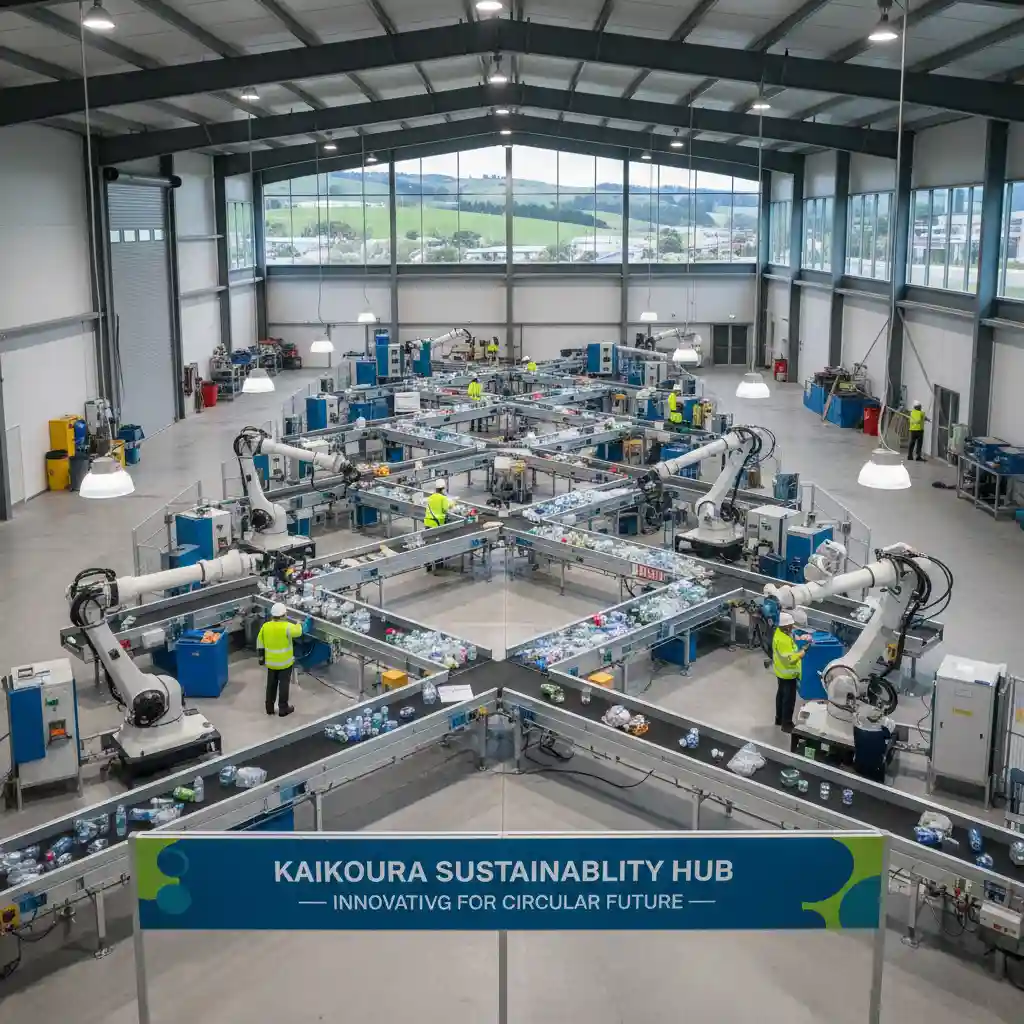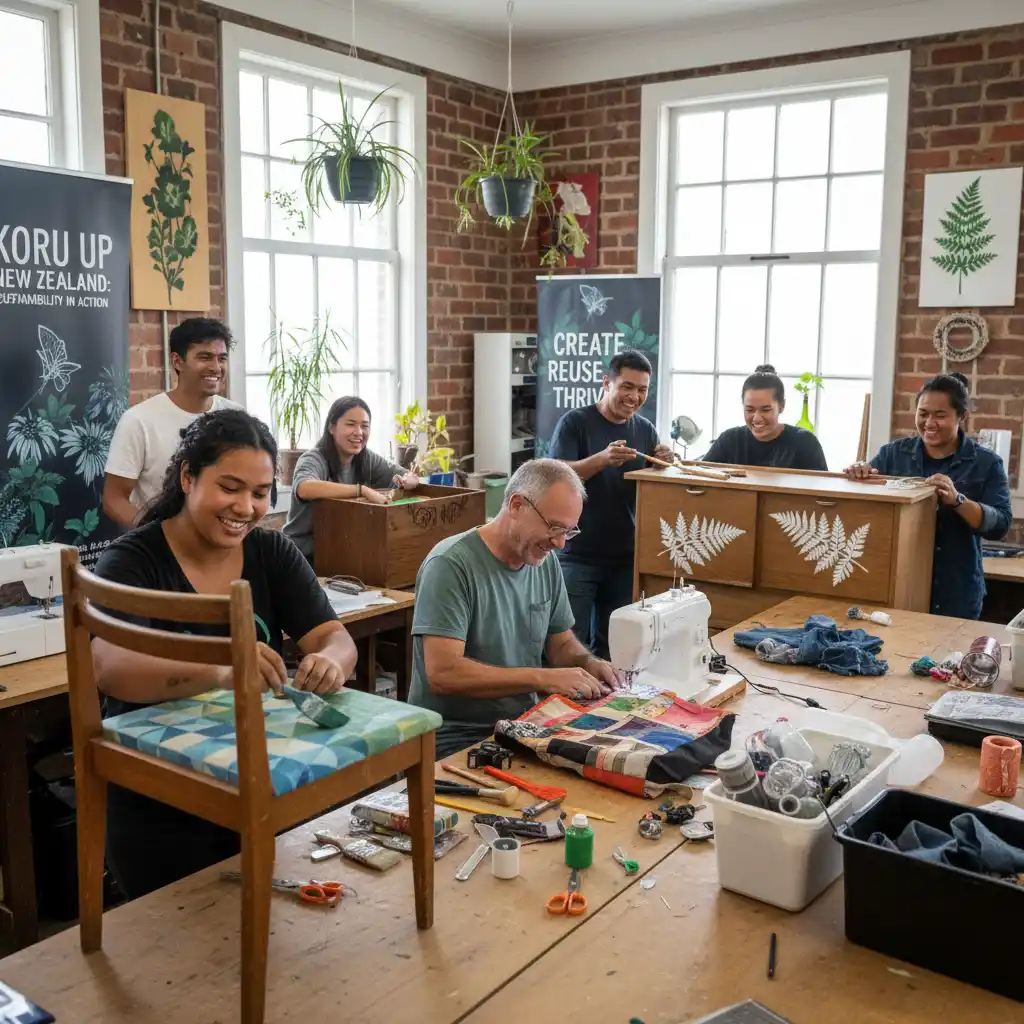Community Initiatives Reducing Landfill Waste in NZ
Aotearoa New Zealand, renowned for its pristine natural beauty, faces a growing challenge: managing its waste. Each year, millions of tonnes of waste are sent to landfills, impacting our environment and future generations. But amidst this challenge, a powerful force is rising: community initiatives reducing landfill waste in NZ.
These grassroots movements, powered by passionate individuals and local groups, are not just cleaning up; they’re fundamentally shifting mindsets and building a more sustainable future, one community at a time. From innovative repair cafes to extensive resource recovery centres, the collective effort across the nation is proving that positive change is not only possible but already thriving.
The Urgency of Waste Reduction in Aotearoa
New Zealand’s ‘clean green’ image is challenged by its waste statistics. Annually, an estimated 2.5 to 3 million tonnes of waste are sent to landfills, a figure that continues to grow. This not only consumes valuable land but also contributes to greenhouse gas emissions through methane release, exacerbating climate change.
STAT CALLOUT: New Zealand generates approximately 739 kg of waste per person per year, significantly higher than many developed nations, with only about one-third currently being diverted from landfill. (Source: Ministry for the Environment)
Addressing this issue requires a multi-faceted approach, moving beyond simple recycling to embrace the wider principles of the circular economy: Refuse, Reduce, Reuse, Repair, and Recycle. This is where the strength of community-led initiatives truly shines, providing practical, accessible solutions that empower individuals to make a tangible difference in reducing their waste footprint.
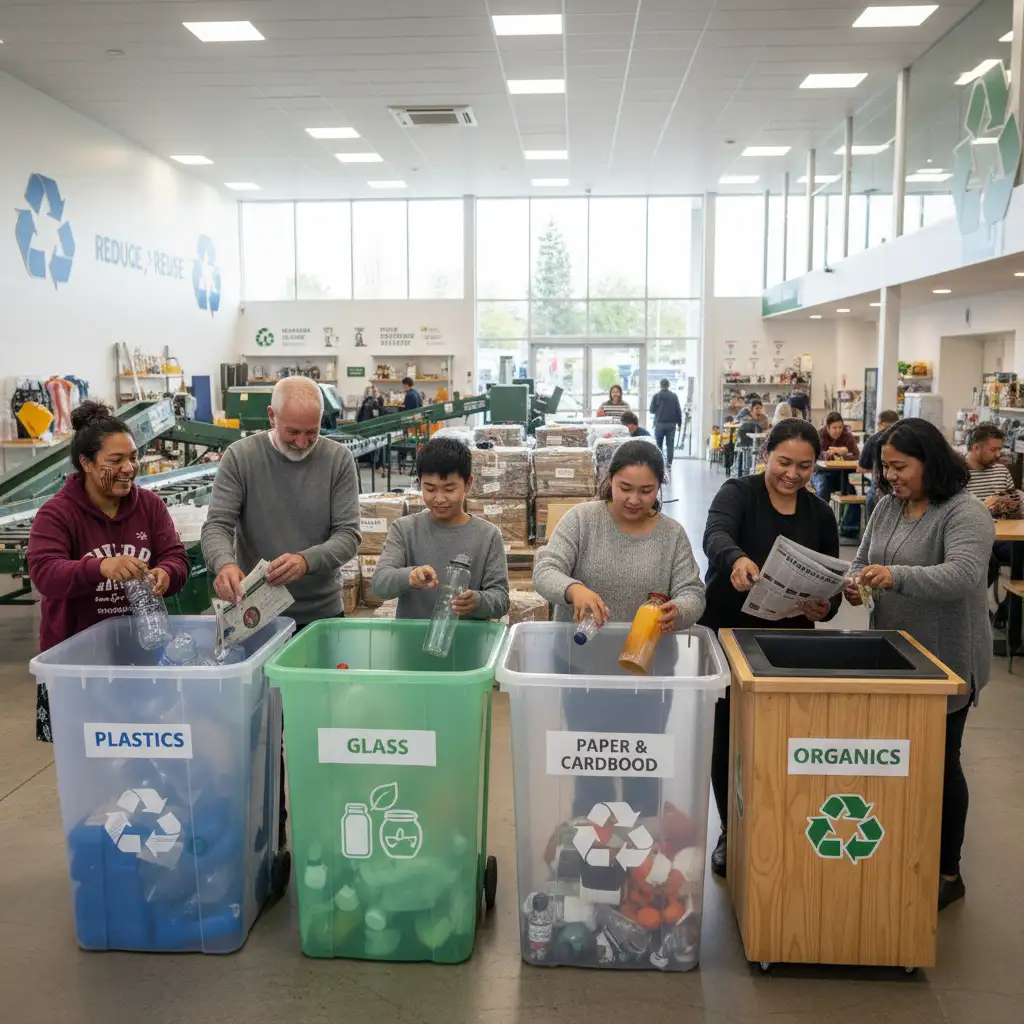
Empowering Change: Diverse Community Initiatives Across NZ
Across the length and breadth of Aotearoa, innovative and dedicated community initiatives are tackling waste head-on. These groups are fostering resilience, teaching valuable skills, and creating vibrant hubs of sustainable living.
Repair Cafes: Giving Items a Second Life
Instead of discarding broken appliances, torn clothing, or faulty electronics, New Zealanders are increasingly turning to local Repair Cafes. Run by volunteers with various skills, these pop-up events offer free repairs, preventing countless items from ending up in landfill and fostering a culture of repair over replacement.
“Repair Cafes are more than just fixing things; they’re about sharing knowledge, building community connections, and valuing our resources. It’s a tangible way to reduce waste and fight consumerism.”
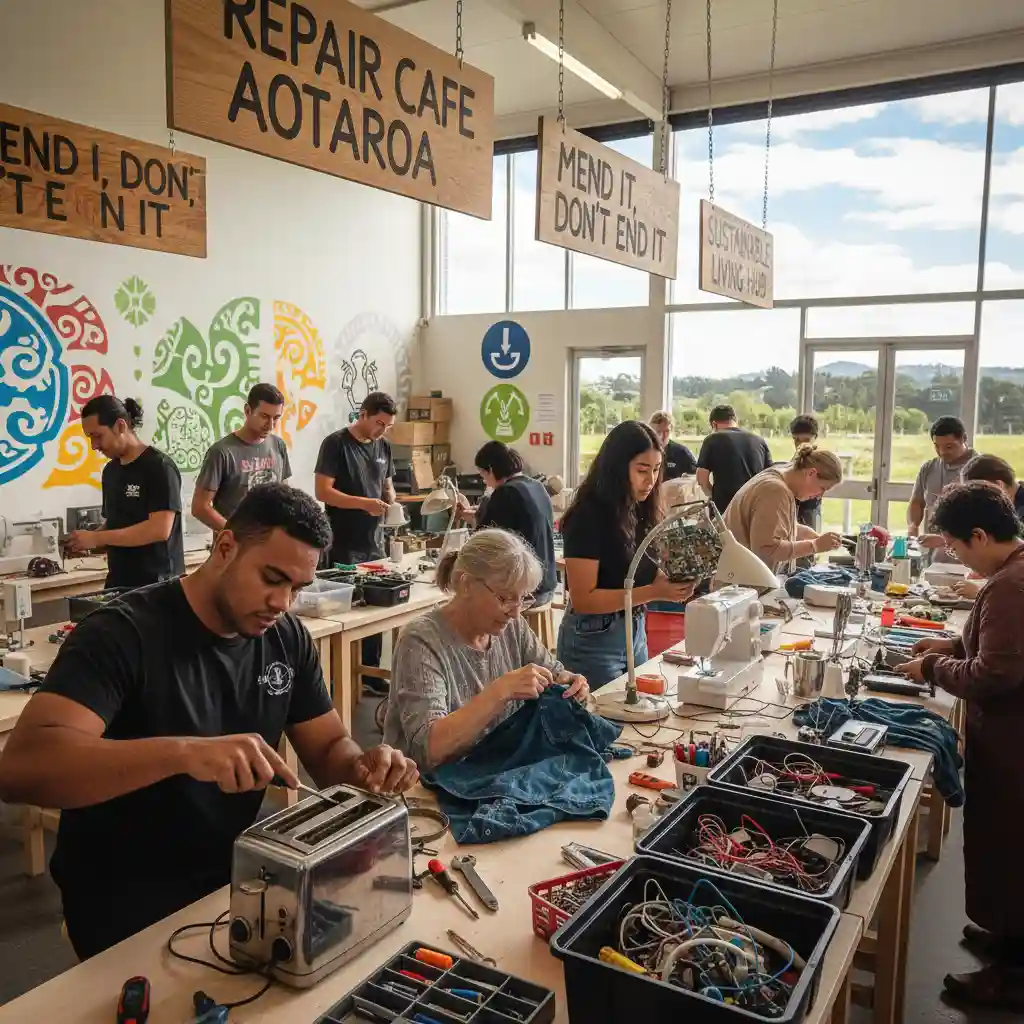
Community Composting Hubs: Turning Scraps into Gold
Food waste is a significant contributor to landfill methane emissions. Community composting initiatives provide a solution by collecting organic waste from households and businesses, transforming it into nutrient-rich compost. These hubs often offer workshops on composting techniques, empowering participants to create their own ‘black gold’ for gardens.
- Why it matters: Diverts organic waste, reduces methane, enriches soil, and reduces the need for chemical fertilisers.
- Common examples: ShareWaste NZ, local community gardens, school composting programmes.
Resource Recovery Centres: Diverting from Landfill
Beyond standard recycling, New Zealand’s Resource Recovery Centres (RRCs) act as comprehensive hubs for diverting valuable materials from landfill. These centres often accept a broader range of items, from building materials and electronics to textiles and furniture, often processing them for reuse or upcycling.
Many RRCs also feature ‘reuse shops’ or ‘creative spaces’ where salvaged items are sold cheaply or transformed into new products, fostering local economies and creative expression.
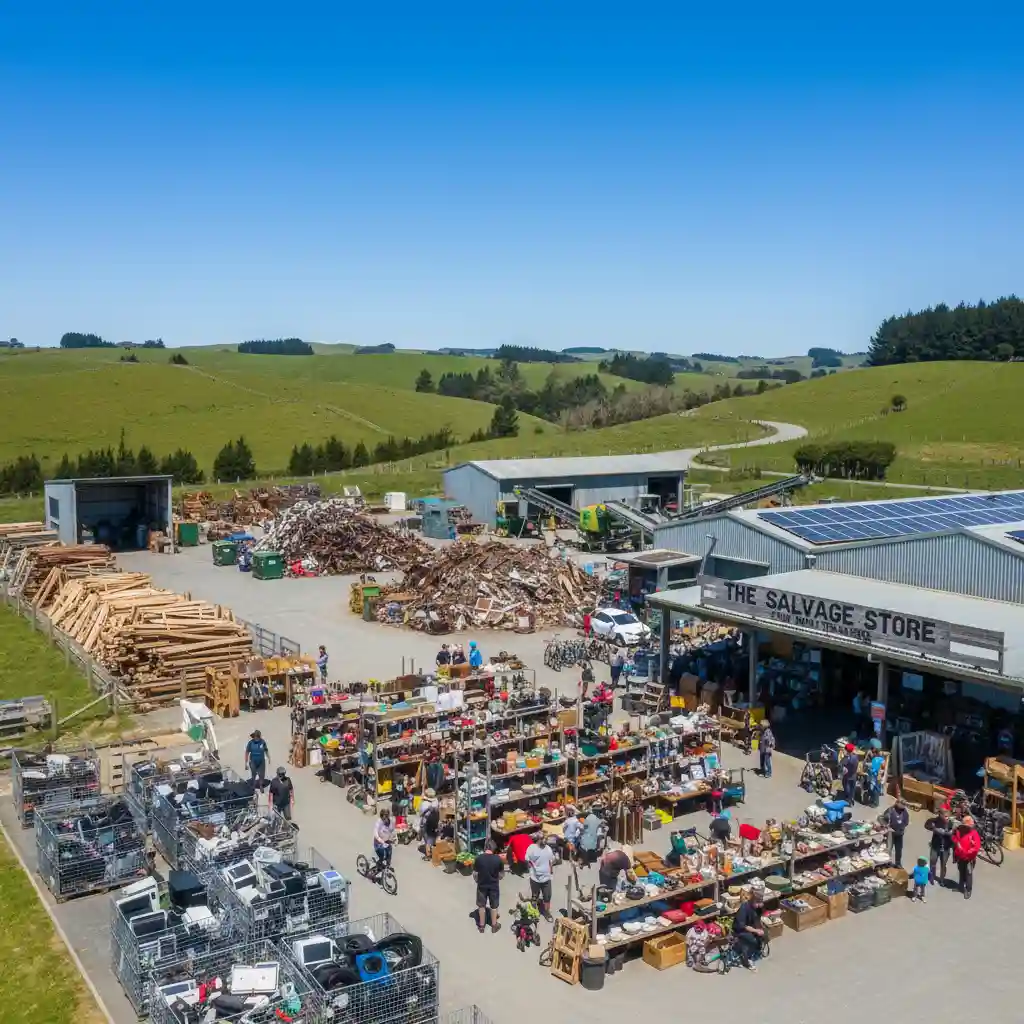
Zero Waste Initiatives & Local Swaps
Numerous smaller, yet impactful, zero-waste initiatives are flourishing. These include:
- Tool Libraries: Lending tools for DIY projects instead of individual ownership.
- Community Fridges/Pantries: Reducing food waste by sharing surplus edible food.
- Clothes Swaps & Toy Libraries: Promoting reuse and extending product lifecycles.
- Bags for Good: Initiatives creating reusable bags from donated fabric, often by community groups.
These collective actions demonstrate the power of local engagement in achieving broader sustainability goals.
How You Can Participate and Make a Difference
Getting involved in community initiatives reducing landfill waste in NZ is easier than you think. Every small action contributes to the larger goal:
- Locate Local Initiatives: Search online for ‘Repair Cafe [your town]’, ‘Community Composting [your region]’, or ‘Resource Recovery Centre [your city]’. Your local council website is also a great starting point.
- Volunteer Your Time: Many initiatives thrive on volunteer power. Offer your skills, whether it’s fixing, gardening, sorting, or simply helping with logistics.
- Donate Wisely: Before tossing, consider if your item can be repaired, donated, or upcycled through a local centre.
- Spread the Word: Share information about these initiatives with friends, family, and neighbours. The more people know, the bigger the impact.
- Start Your Own: If there’s a gap in your community, consider starting a small initiative. Even a neighbourhood compost heap or a regular clothes swap can make a difference.
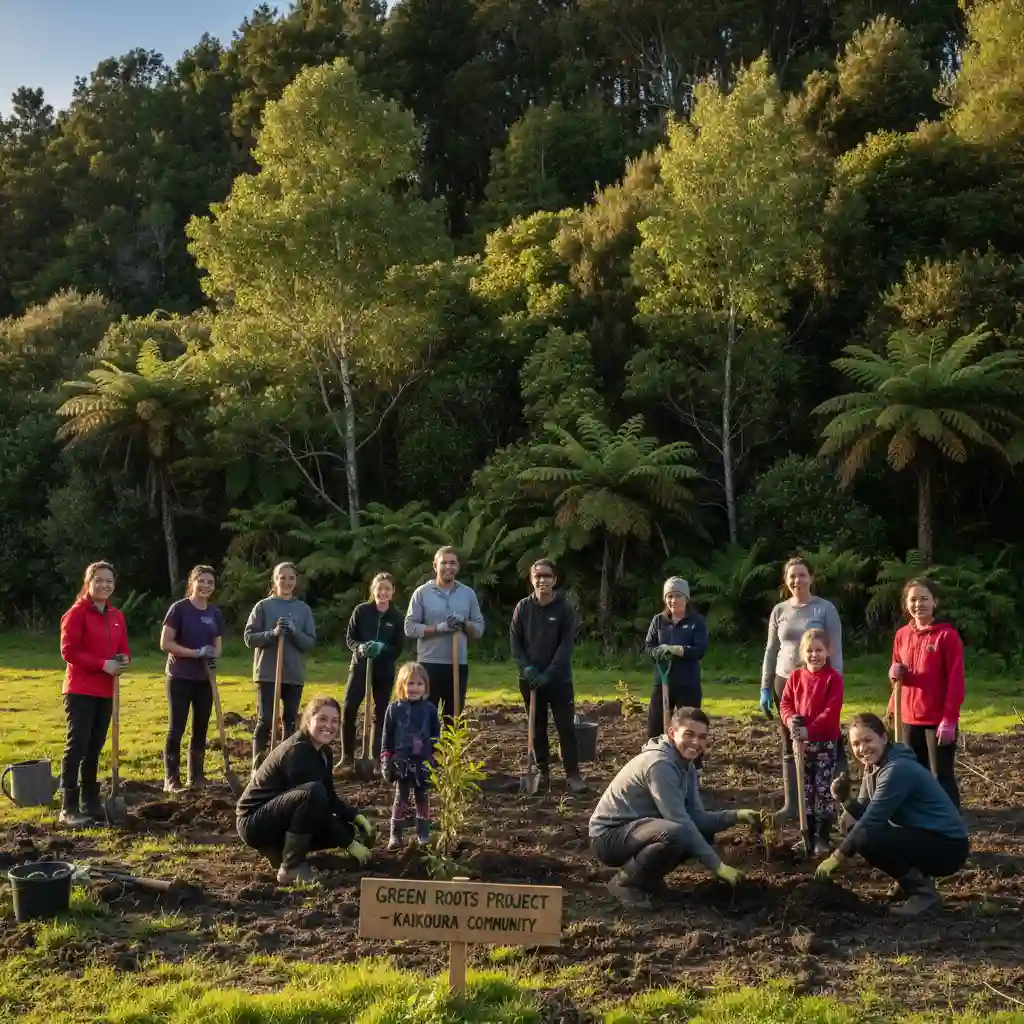
The Ripple Effect: Beyond Waste Reduction
The impact of community initiatives extends far beyond simply diverting waste from landfill. They cultivate a multitude of positive ripple effects:
- Skill Sharing & Education: Participants learn valuable repair, crafting, and gardening skills.
- Stronger Communities: These hubs create meeting places, fostering social connection and collective purpose.
- Economic Opportunities: Reuse shops, upcycling projects, and local material processing can create local jobs.
- Environmental Stewardship: Instilling a deeper respect for resources and the environment in participants.
- Reduced Consumption: By promoting repair and reuse, these initiatives challenge the throwaway culture and encourage mindful consumption.
Conclusion: A Collective Vision for a Sustainable Future
The journey towards a truly sustainable New Zealand requires collective action, and community initiatives reducing landfill waste in NZ are at the forefront of this movement. They embody the spirit of kaitiakitanga – guardianship of the land – demonstrating that by working together, we can transform our waste challenges into opportunities for growth, learning, and stronger, more resilient communities.
Embracing these initiatives is not just about waste; it’s about building a better future for Aotearoa, one repair, one compost bin, and one shared resource at a time. Let’s support, participate in, and champion these vital efforts for a healthier planet.
Frequently Asked Questions (FAQ)
What are community initiatives for waste reduction?
Community initiatives are grassroots, locally-driven efforts aimed at reducing waste sent to landfills. This includes activities like Repair Cafes, community composting hubs, resource recovery centres, tool libraries, and clothes swap events. They often rely on volunteers and local participation to operate and achieve their goals.
Why are these initiatives important for New Zealand?
New Zealand faces significant challenges with landfill waste, contributing to environmental pollution and greenhouse gas emissions. Community initiatives are crucial because they offer practical, accessible solutions at a local level, empowering individuals to reduce waste, foster a circular economy, share skills, and build stronger, more sustainable communities.
How can I find a Repair Cafe or resource recovery centre near me?
You can typically find local initiatives by searching online for ‘Repair Cafe [your town/city]’, ‘Community Composting [your region]’, or ‘Resource Recovery Centre [your city]’. Many local council websites also list sustainable living initiatives and waste diversion services in their area. Social media groups for your local community can also be a good resource.
Can I volunteer for these initiatives?
Absolutely! Most community waste reduction initiatives rely heavily on volunteers. They often need people with specific skills (e.g., repairing electronics, sewing, gardening) but also general helpers for organisation, event setup, outreach, and administration. Contact your local initiative directly to inquire about volunteer opportunities.
What is the ‘circular economy’ and how do these initiatives contribute to it?
A circular economy is an economic system aimed at eliminating waste and the continual use of resources. It involves practices like reusing, repairing, refurbishing, and recycling materials for as long as possible. Community initiatives like repair cafes and resource recovery centres are fundamental to this by extending product lifecycles, recovering valuable materials, and preventing items from becoming waste, thereby moving away from a linear ‘take-make-dispose’ model.
References/Sources
- Ministry for the Environment. (2022). Our atmosphere and climate 2020: Waste and its impacts. Retrieved from environment.govt.nz
- Zero Waste Network Aotearoa. (n.d.). About Us & Initiatives. Retrieved from zerowaste.co.nz
- Repair Cafe Aotearoa New Zealand. (n.d.). Find a Repair Cafe. Retrieved from repaircafeaotearoa.org.nz
- ShareWaste NZ. (n.d.). Connect with your community to compost food scraps. Retrieved from sharewaste.com/nz/
- The Waste Management Institute New Zealand. (n.d.). Waste Statistics. Retrieved from wasteminz.org.nz
